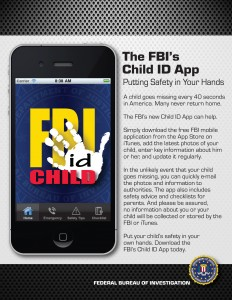 It’s hard to believe that summer’s already over, but the beginning of a new school year is just a few weeks away. Which means that many kids are getting back, or have already gotten back, from camp. Camp can be a wonderful experience, but as with most things in our increasingly connected world, there are more things to look out for than there were when we were kids.
It’s hard to believe that summer’s already over, but the beginning of a new school year is just a few weeks away. Which means that many kids are getting back, or have already gotten back, from camp. Camp can be a wonderful experience, but as with most things in our increasingly connected world, there are more things to look out for than there were when we were kids.
Here’s a hypothetical story. Johnny, a shy boy of about 12, attended a sleep-away camp. His counselor helped Johnny make friends with the other kids, who seemed intimidating to Johnny. Johnny was proud to gain confidence, and his parents were grateful to the counselor for helping Johnny grow.
This would be a great story if it weren’t for the fact that after Johnny got back from camp, he started to disengage from his family. He spoke less at the table and was constantly on his laptop or smartphone. No one could get through to him – not his parents, his favorite teachers or the baseball coach he used to admire.
Finally, his parents were alarmed enough to hack into his laptop and smartphone, where they found months of illicit email and chat conversations between Johnny and the counselor. They also found inappropriate pictures and plans for a secret rendezvous. The parents were horrified and immediately got the police and a psychologist involved.
Actually, this is more than a hypothetical. This is based on something that happened to the child of a friend of mine. I helped my friend navigate the complicated aspects of dealing with the police and prosecutors, and the emotional strain on the entire family.
We are left to ask: How on earth could something like this happen? The answer is simple: access. We adults may remember carefree summers spent at camp with gaggles of new friends and maybe a fun counselor or two. When we left camp, we left camp behind. Camp counselors had very limited access to campers after the summer ended. If a counselor wanted to communicate with a camper, he would have to call his or her home phone or write a letter, both of which would go through a parent, reducing the chances of ill-intentioned activity.
But all that has changed in today’s device-dependent world with social media, IMs, texts, chat and cell and smartphones.
A counselor can now connect to your child even when your child is in the safe haven of your house. The counselor might suggest they keep in touch so the camper can let him or her know about their school year or the rest of their summer. So the camper gives the counselor her cell phone number or accepts a friend request from the counselor on Facebook or a similar site. They begin to exchange messages, and the counselor starts “grooming” the camper.
Grooming is a seemingly innocuous process by which an online predator — in this case, the counselor — finds an “in” with the child, slowly coaxing her away from family and friends, claiming to be the only one who really understands her. With her cell number in hand, the counselor has anytime-anywhere access to the child. It’s not a big step to a meeting in person, where irreparable harm can take place.
Is there a way you could know if this was happening to your child? First, it is important to understand the method by which the counselor can get access to your child and how the grooming process begins, as I outlined above. Second, after camp, watch her actions carefully. She will have more private time and opportunities for private conversations. If her behavior changes, especially if she reduces her time with friends and family and you are concerned that something is happening, it might be time to use monitoring tools like Mobile Watchdog, a service that allows you to read your child’s smartphone chat sessions.
To minimize the chance of getting into this position in the first place, before camp or any other away-from-home experience begins, talk to your children about making wise decisions with online and real-life friends. Even if they are already in the habit of talking to you about everyone in their lives, make sure to extend that conversation into their online lives. Children don’t always know they are being groomed, so we need to make them aware of potential dangers.
We also need to discriminate when selecting camps. Ask the camp about their process for selecting counselors. Many camps are now carefully vetting each counselor they hire, perhaps even running background checks against state sex offender registries. But be aware that these checks are limited to the state where the counselor lives, and would-be predators could have perfect records. Finally, do your own research about the camp. Use Google and your own network of friends and family to find information. Check out what parenting sites are saying about the camps you are considering.
Thousands of children have a great time at camp every summer. The keys to ensuring a carefree summer for both you and your child are communication, preparation and vigilance. With these keys in place, camp can be a great and safe experience.
 The recent child abductions in Colorado and New Jersey raise important questions about how to best assist law enforcement in locating and rescuing missing children. According to a survey released by the National Center for Missing and Exploited Children, not enough parents in the United States know vital statistics about their kids, including height, hair color, eye color, weight, etc. Young children change in physical appearance so rapidly that parents often struggle to keep up with this information. In a time of crisis, a panicked parent may labor even more to accurately recall and disseminate these vital details to authorities.
The recent child abductions in Colorado and New Jersey raise important questions about how to best assist law enforcement in locating and rescuing missing children. According to a survey released by the National Center for Missing and Exploited Children, not enough parents in the United States know vital statistics about their kids, including height, hair color, eye color, weight, etc. Young children change in physical appearance so rapidly that parents often struggle to keep up with this information. In a time of crisis, a panicked parent may labor even more to accurately recall and disseminate these vital details to authorities.


Follow me